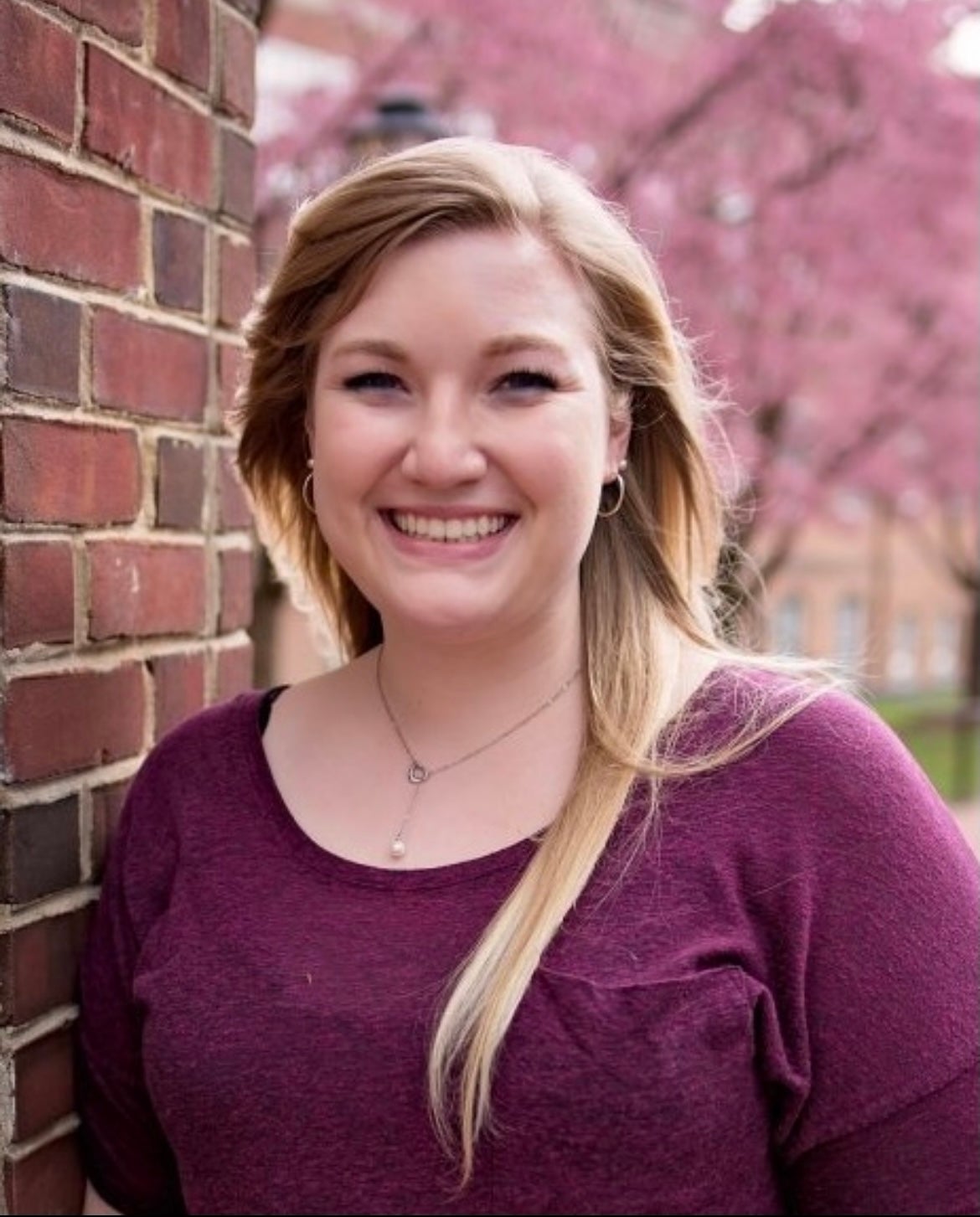
Kristen Baker, RI-INBRE Teaching Postdoctoral Fellow
Kristen Baker, Ph.D. “very early on, fell in love” an organic chemistry class in high school and attended Gettysburg College, majoring in chemistry and minoring in mathematics. She completed research within the chemistry department and was a chemistry laboratory teaching assistant that “pushed her towards graduate school.” In the University of Delaware’s graduate school program, Baker immediately joined a research group and was “very happy with the work.” She discovered her joy of teaching when invited to give a guest lecture in her mentor’s organic chemistry class. During her five years in Mary P. Watson’s Research Group, Baker served as a Laboratory Teaching Assistant, however, the classroom experience solidified her desire to pursue.
In December 2020 while job searching, Baker grappled with her looming graduation date and her plans. Looking “for something more” than an industry position or traditional postdoctoral fellowship, she wanted an opportunity that provided teaching and research experience. As if by fate, Dr. Seann Mulcahy, Associate Professor of Chemistry at Providence College, emailed his colleagues about an exciting RI-INBRE Teaching Postdoctoral Fellowship opportunity in Chemistry and Biochemistry. Baker applied right away and was offered the position. “I very quickly knew this was exactly what I wanted to do, to have the teaching experience without the pressure of [a traditional] visiting professorship.”
Fellowship Highlights
In the summer of 2021, Dr. Baker joined Providence College as Dr. Mulcahy’s mentee. She had “a of couple weeks with the research students” in Mulcahy’s lab when she also prepared for teaching the fall semester while gaining hands-on lab experience with the students delighted to be conducting research. “It’s been a huge highlight to see everyone excited about their projects and when schedules line up so we can be together in [the] lab and get to know each other.” From a teaching perspective, Dr. Baker watched her students become comfortable with the material and confident to reach out for her advice and support with their academic planning and career goals. More importantly she shared that her students became a small, tight-knit class of 21. “I’ve heard them making plans to hang out [and] go out to dinner,” a critical component of the collegiate experience and necessary when many college students were impacted by lack of social interactions or virtual learning due to the pandemic.
Any Advice for Future Postdoctoral Fellows?
Baker’s biggest hurdle was adjusting from her graduate student mentality, starting the TPF three weeks after graduating from her Ph.D. program. While used to the “hustle and bustle of [a] full-time graduate school and being in the lab all the time,” Baker recognized that the fellowship meant changing her mindset of “needing to make progress all the time” to balancing her schedule, teaching, preparing lectures, and doing research. In addition to her fellowship roles and responsibilities, professional development and networking opportunities are at the top of Dr. Baker’s priority list., Dr. Baker participated in the SURF 2021 conference and found the in-person opportunity helpful to meet more researchers and professionals from across the state, overcoming networking difficulties during the pandemic. Another challenge was her change in mindset from student to teacher, learning that certain tasks “can wait until tomorrow.” Compared to graduate school, where “I would need to set up experiments for students, arrive early, and stay late to get the research done,” Baker is learning to step back and let her students learn, make mistakes, and find their independence and autonomy in the lab.
Final Thoughts
Although the RI-INBRE Teaching Postdoctoral Fellowship is a rare opportunity and not all graduate students will have access to a similar program, Baker says, “Go for it!” The fellowship allowed her to develop her teaching style and philosophy while continuing with her passion for research. “I cannot imagine myself not being in the lab” she shared. The TPF provided Baker with the opportunity to learn about the “behind-the-scenes” work of a faculty member that includes service, committees, meetings, and more. Through her fellowship, Kristen concluded, “I’m not just doing research or teaching, but truly learning about the ins and outs of being a professor and all that it entails.”
